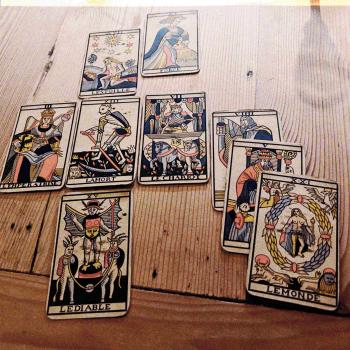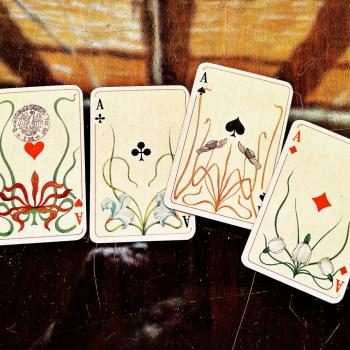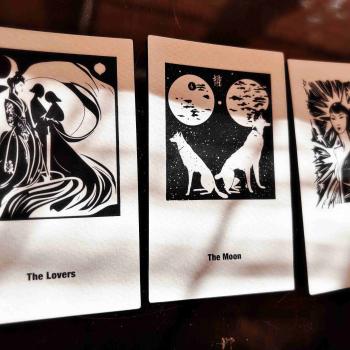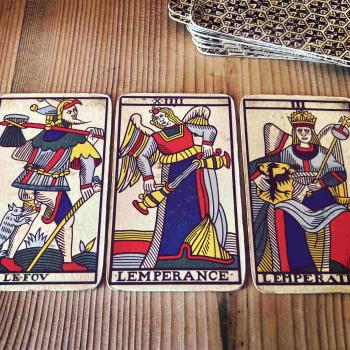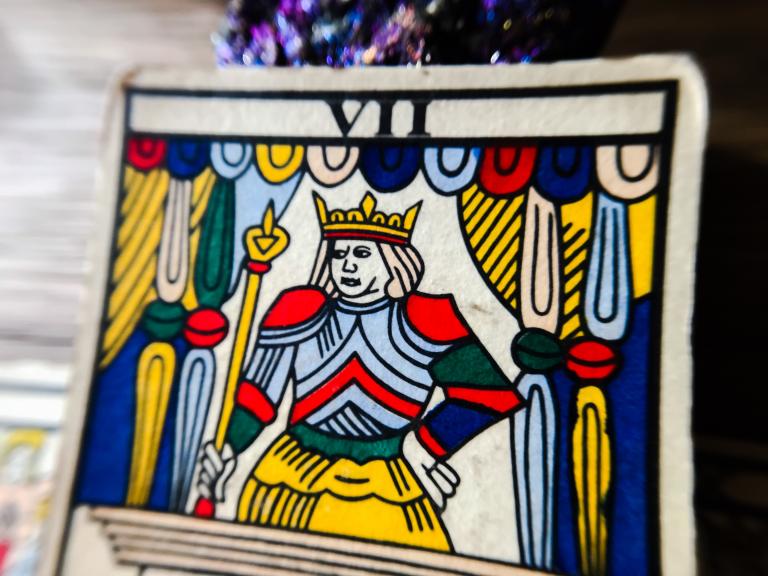
Most standard readings of the Tarot cards will tell you that the Charioteer is all about coming: coming victoriously, coming home to be celebrated by the town, coming into character.
This is true until we realize that, in actuality, there’s also a going: going away or getting away very fast.
In all my teaching, I insist very much on making this point:
All readings are occasioned by a context and its question, not by lists of ‘traditional meanings.’
Logically speaking it follows that your interpretations are, in actuality, also occasioned.
As a consequence, your response to the cards must be occasioned by what you see happening right now in the cards, not by what a fortuneteller said in the past that has now become a whole institution that issues directives and regulates symbols.
Lists of meanings can be derived from commonsensical associations, but unless they are occasioned by your reading, you might as well ditch them.
I always say, use lists wisely, not indiscriminately. Don’t just go, ‘Victory,’ when you see the Charioteer. What if your reading is occasioned by a situation of cowardice, or by a situation of good fortune, when you grab the opportunity to say to yourself: ‘I’m so out here?’
This week I had an occasion to speak about the difference between doing contemplative work in the style of Zen deconstruction of language and self-help, which I see as exactly the opposite of deconstructing grand narratives.
In self-help the Self is in focus and Help is also in focus. This presupposes that the Self has inherent existence and that Help is something the Self can benefit from, the presupposition also being that the Self has free will.
In Zen parlance the Self is a narrative, a fiction based on interpretation, a set of beliefs that, contrary to what is maintained, doesn’t move mountains, doesn’t win confidence wars, and doesn’t enlighten.
Let’s try this again: There is a self and the self can help itself.
Really?
I ask you this: ‘Can you hear all that? What do you think that all these words are? A representation of reality? Think again.’
Self-help providers know all about the fiction that goes into the narratives of self-interpretation, or else they wouldn’t be moving so easily along the axis of shifting stories of self-empowerment. Where it goes wrong, or becomes downright dishonest, is when there’s insistence that there’s an authentic core, an inner spark and authenticity that you can uncover through various methods, leading you to your true self.
In the context of my conversation about self-help, these cards came up:
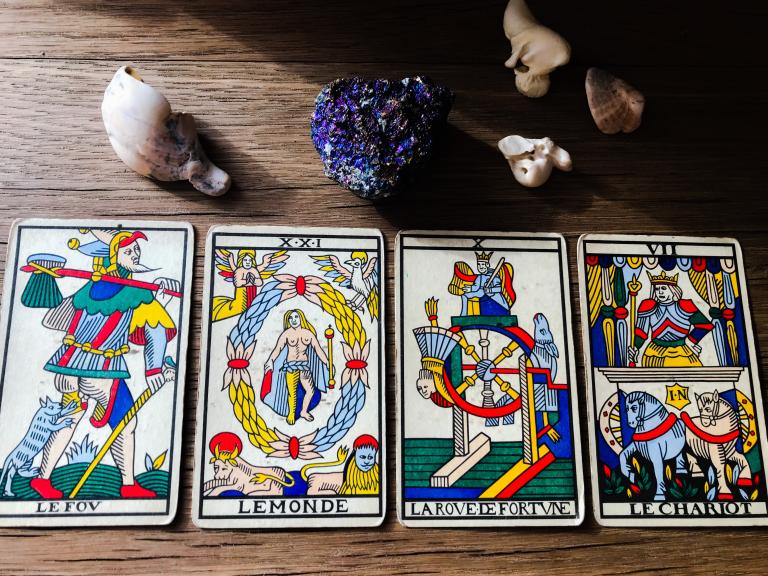
Fool, World, Wheel of Fortune, Charioteer
I simply said the following:
The Fool comes to the promised land. The promised land turns out to be ‘more of the same shit’.
What’s the appropriate action? To stay or to go?
What will occasion your reading of the Charioteer as a story of success, one of coming victoriously, celebrating what has already been deemed a disappointment?
As far as I’m concerned, the Charioteer says this: ‘I came, I saw, I conquered… my foolish belief that the lauded world actually has something of value of offer. How stupid can I be to hop on that wagon? I’m out of here.’
Next time you see your cards, just think about what you’re saying, and how occasioned what you’re saying is by what is the case, not by what you ‘know’ to be a fact simply because others said so.
♠
Stay in the loop for cartomantic activities. Coming up in late April is the advanced module in reading with the Marseille cards, Radiant Reading.







